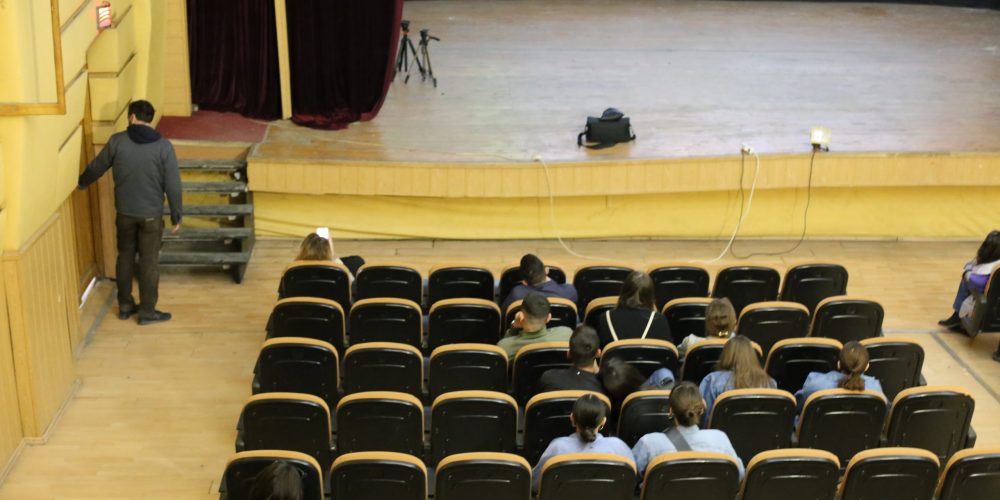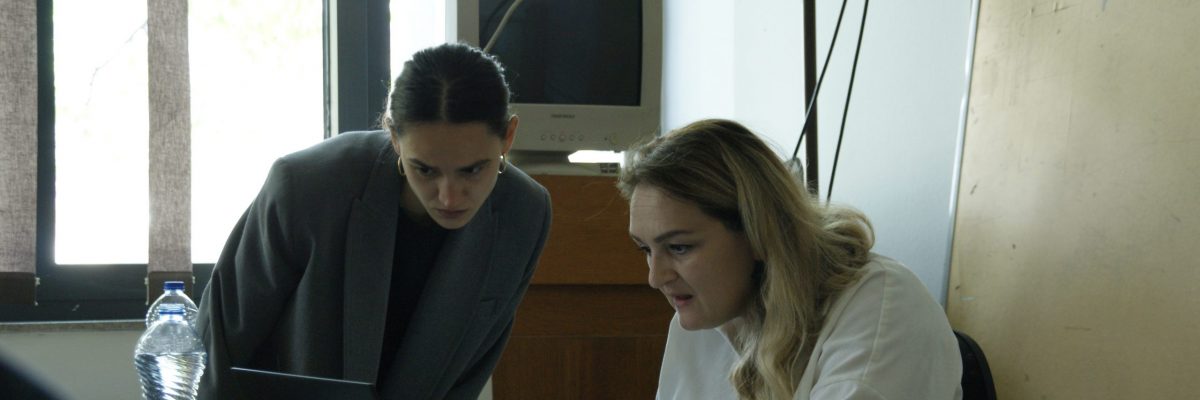Between 1945 and 1992 Kosova was part of the Socialist Federal Republic of Yugoslavia. The breakup of SFRY came to Kosova with the forceful, structural and systematic political removal of rights of its Albanian majority. It was accompanied by a violent intervention of the state in an apartheid like system, lasting a decade, though a ‘state of emergency’ imposed by Slobodan Milosevic’s regime.
In 1990 the police took over Prishtina’s radio and television station, Albanian journalists were expelled, and the expulsion of all government employees, health care, media, education, and other cultural, economic, and political institutions folllowed. During 1990 alone, an estimated 45 percent of Kosovar Albanians lost their jobs under these measures, reaching almost all public sector employees by the end of the following year. The regime centralized control in Belgrade and annexed Kosova.
It was in this context that Dodona Theater came to be known as the ‘theater of resistance.’ It emerged as an independent artistic space of multiple possibilities, negotiating disparate constraints and pressures that created transformative pedagogy, performance and resistance. Once public gatherings of more than five persons in public space became legally restricted, going to the theater became a manifestation of political disobedience, sharing of the experience, as well as performing agency.

SITEFACTS
Dodona Theater was established as a puppet theater in 1987.
The Dodona Theatre troupe initially performed in various theatres throughout Kosova until the building was open for production in 1992.
The theater has one stage and 167 seats began
It functioned as a puppet theater for children in the daytime.
Evening shows largely sustained the theater based on ticket sales from popular performances, plays by Cehov, Shakespeare, and others, and in particularly highly popular comedies like Profesor jam talent se jo mahi.
In the evening Dodona was also rented as a concert hall for emerging music bands.
Dodona was home away from home for the national theater that was closed through forced measures and served as a school for new actors, directors and students of the Drama Department at the University of Prishtina.
Comedy shows were very popular in Dodona, especially the play “Profesor jam talent se jo mahi” (“Professor I am a talent indeed”).
Faruk Begolli, a star of film and theater, moved to Prishtina to become the professor and director of a young generation of actors. Begolli was credited for making Dodona the remarkable space it was by inviting audiences to participate in the performance. As a professor of acting and direction, Begolli made theater accessible and open to all by reflecting, laughing at and by performing the crisis outside of the theater.






